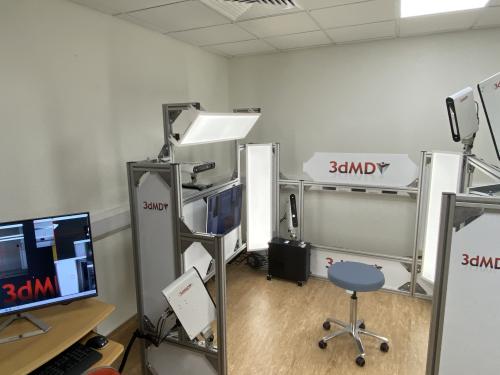North Bristol NHS Trust has opened an innovative centre for 3D scanning and printing, providing state-of-the-art technology for the development of bespoke prosthetics and devices.
The Bristol 3D Medical Centre brings together expertise for digital planning, design, and manufacturing of patient-specific devices and medical models to enable safer and more accurate patient care.
According to the trust, this is the first time in the UK that 3D scanning, design and printing has been brought together in one NHS location.
The centre provides scientific and technical support across the UK, offering leading digital technology and specialist reconstructive scientists’ expertise.
Amy Davey, Senior Reconstructive Scientist at North Bristol NHS Trust, said: “Surface scanning patients for prosthetics means that patients can be scanned while moving, and this technology can use that movement to aid the prostheses to accommodate movement.
“The old method of producing a helmet for babies with plagiocephaly and brachycephaly required a general anaesthetic to eliminate movement whilst the mould of the baby’s skull was produced.
“With 3D surface scanning, the baby can move around freely and happily and a 3D printed helmet subsequently produced from that scan.”
3D scanning allows for a look at a prosthetic, and other devices, in a 2D form as well as a 3D form in terms of realistic reconstruction.
Amy continued: “3D printing also uses advanced plastic resins whose properties closely resemble those of the bones themselves, allowing a far more ’natural’ implant or prosthetic.
“3D scanning over time can be useful in quantifying a patient’s progress and enabling any necessary adjustments to be carried out, particularly for treating and monitoring scars.”
Beyond 3D designing and printing of medical devices, the centre is also finding other applications.
3D models can be made to help surgeons prepare for surgery. For example, a model of a damaged kidney showing not only the area to be removed but highlighting nerves and blood vessels as a tool to plan the operation.
The majority of the equipment within the centre is funded by donations to Southmead Hospital Charity, the official charity of North Bristol NHS Trust.
Amy explained that the funding meant that the centre was able to purchase the main 3D surface scanner, alongside the accompanying software, desktop surface scanner, and AR headset.
She said that the centre will begin using the technology to treat patients requiring prosthetics and reconstruction, which will increase current capacity for this work by 50 percent.
“We feel very fortunate to have received the funding from the charity, which will help us to provide great patient care by providing a more relaxing and less intrusive scanning process and, as the equipment is state-of-the-art, it ensures that ourselves and University Hospitals Bristol and Weston NHS Foundation Trust are providing healthcare that is fit for the future,” Amy added.
A recent House of Lords debate laid bare the serious challenges facing amputees in England, particularly with regard to access to prosthetic care through the NHS. The discussion highlighted widespread delays, outdated prosthetics technology, workforce shortages, and regional inequalities in accessing NHS prosthetic services that continue to undermine patient outcomes.
The post New Bristol 3D Medical Centre will develop cutting-edge, bespoke prosthetics and devices appeared first on AT Today – Assistive Technology.

